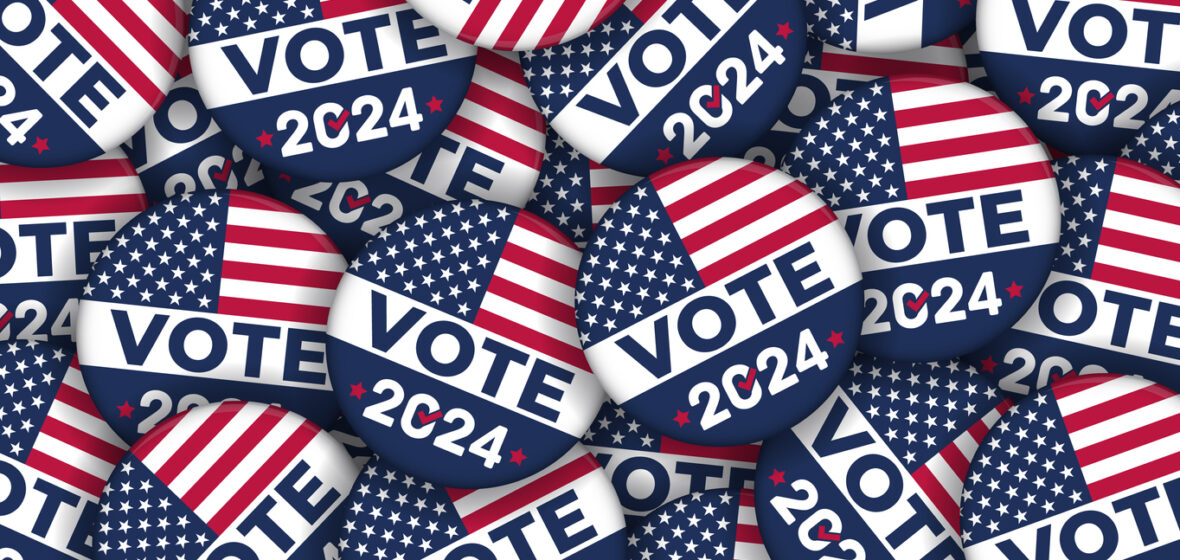In a fiery contest at Philadelphia’s Constitutional Convention Centre, Vice President Kamala Harris reaffirmed her party’s decision to ask President Biden to step down, and implored Americans to choose a less divisive future.
It began with a handshake. As Donald Trump and Kamala Harris were announced onto the stage, and as the former president walked directly to his lectern, Harris walked past her own lectern and straight to his, marking the first time the two had ever met.
“Kamala Harris”, she said. “Let’s have a good debate.”
Whether it was indeed a good debate might depend on the candidate you favour.
From the outset Harris sought to get under Trump’s skin. She baited him about the crowd sizes at his rallies, teased him over the support she has received from his own former staff members, and castigated his cozying up to dictators, declaring: “Putin would eat you for lunch”.
Perhaps disappointingly to many of Trump’s supporters who have been begging him to stay on message, Trump took the bait. He responded with familiar lines about his crowds — “the biggest we’ve ever seen” — compared to Harris’s — “paid and bussed in from hundreds of miles away”; he derided the “very bad people” he had fired from his staff; and he defended his reputation on the global stage, citing his close ties with Viktor Orban, the nationalist and authoritarian leader of Hungary.
If riling Trump up was Harris’s first goal, a clear second was her attempt to demonstrate the candidates’ differences on the policies that Americans care about the most.
On the cost of living, an issue where voters favour Trump, Harris repeatedly brought up her new policies to ease the burden of the middle class, including a $6,000 child tax credit, incentives to ease the cost of housing and funding for start-ups.
On abortion, the Democrats’ strongest issue, she laid the blame entirely onto Trump, telling Americans that Trump’s handpicked Supreme Court justices had caused the current crisis that she said means women in 20 states are unable to terminate even the earliest of pregnancies with no exceptions, and where in some states the doctors that administer abortions can be executed for murder.
Although Trump appeared prepared for these questions and Harris’s attacks, he at times descended into hyperbole and conspiracy. On the topic of abortion, Trump lauded the six members of the Supreme Court who voted to overturn Roe v Wade, saying that they had done a very brave thing by bringing the question of abortion back to the states — a position, he said, “everyone wanted”. He refused to say whether he would veto a national abortion ban — a soundbite that Democrats will use in many ads between now and election day — and he sought to portray the Democrats’ position on abortion as too extreme for America, suggesting that Vice Presidential candidate Tim Walz and many other Democrats support executing babies after they are born.
In response to that last allegation, the ABC’s moderator Linsey Davis interjected to say that no state in America permits babies to be killed after birth. It was an interesting development, as viewers may recall that CNN’s moderators declined to fact-check in the previous debate between Trump and Biden. Davis and her co-moderator David Muir would fact-check Trump several times throughout the night but did not respond to any claims that Harris made — a decision that angered many of Trump’s supporters on social media.
Aside from abortion and the economy, the most significant issue in this election is immigration, which has long been a winning issue for Republicans. Voters support Trump over Harris by double digits on this topic, in large part because the Biden Harris administration has failed to stop what many agree is a border crisis in America, although experts differ on whose fault this is.
Time and again throughout the course of the two-hour debate, Trump sought to inject immigration into his answers, regardless of its relevance. At times he made a compelling case for the current administration’s failings, but in the eyes of most viewers, he too often descended into deep right-wing talking points. He said that crime rates are down “all over the world” because of all the criminals who have left their own countries to flood into the United States. He embraced the newest conspiracy peddled among the MAGA movement that in the small town of Springfield, Ohio, immigrants have been eating people’s pets. “They’re eating the dogs”, he said. “I saw people on television talking about it.”
And in another memorable line from a night of ‘soundbitable’ moments, he said Harris and her supporters are performing “transgender operations on illegal aliens in prisons”.
By avoiding any of the gaffes, fumbles and general incoherence of Joe Biden at the previous debate, Harris effectively brought the attention back onto Trump’s own confusing and at times rambling remarks and pleaded with voters not to return to his race baiting and divisive presidency. She implored Americans to choose a leader who respects American democracy, who looks out for its allies on the world stage, and who looks out for “you” — the voter.
In the hours after the debate ended, thousands of new donors have donated millions to Harris’s campaign and her team has called for a second debate. Most of the pundits and bookmakers have said Harris won the debate resoundingly. And Taylor Swift has endorsed Kamala Harris for President.
Will any of this matter?
Most of Harris’s and Trump’s support is baked in, and Trump’s supporters are already using the debate to push an ‘us against them’ narrative, alleging that they represent the working people against the ruling class.
Prominent conservative Megyn Kelly commented: “The pile-on against Trump is so bad and so obvious this will backfire”, and Ben Shapiro wrote “The moderators are the story of the evening. And it isn’t a good story.”
Trump’s campaign, meanwhile, put out a statement before the debate finished declaring his victory.
In recent high-quality polls, about 47 per cent of likely voters support Trump for president, and almost exactly the same number support Harris. The election will turn on the 5-10 per cent of swing voters and the registered voters who still haven’t decided whether they’ll turn up to vote.




